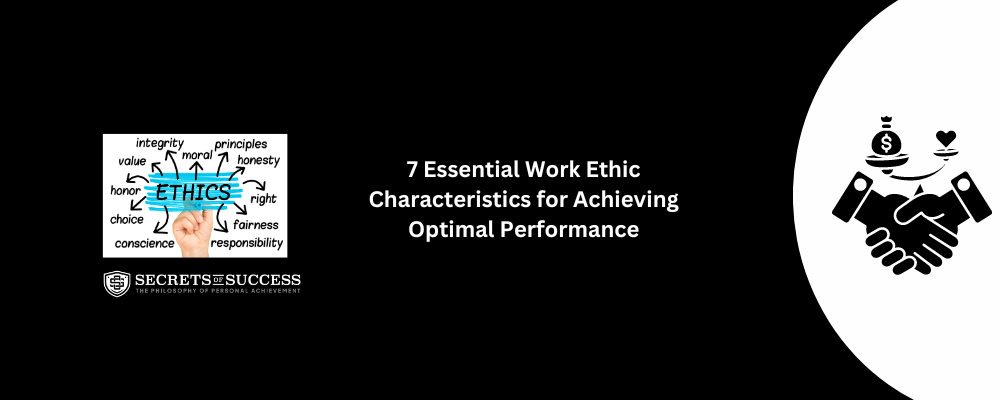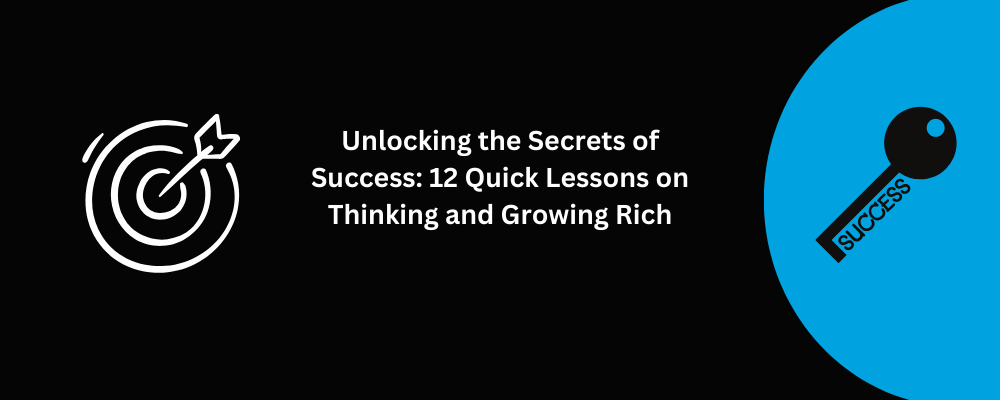In today’s competitive landscape, having a strong work ethic is more crucial than ever. A robust work ethic helps you stand out and paves the way for long-term success. But what exactly constitutes a good work ethic? How can we cultivate these traits to improve our performance and achieve our career goals? This article dives deep into the seven core work ethic characteristics that drive optimal performance and how you can develop them for a successful career.
How To Get Anything You Want Challenge
1. Integrity: The Foundation of Trust
Integrity is the cornerstone of any robust work ethic. It involves being honest, ethical, and consistent in all aspects of your professional life. When we uphold integrity, we build trust among colleagues, clients, and employers. It’s not just about doing the right thing when someone is watching; it’s about maintaining the same standards, regardless of the circumstances.
How to Develop Integrity:
- Be Transparent: Always communicate honestly.
- Admit Mistakes: Own up to errors and learn from them.
- Consistent Behavior: Align your actions with your values consistently.
2. Discipline: The Art of Staying Focused
Discipline involves maintaining focus and staying committed to your tasks, even when distractions are tempting. A disciplined individual has a structured approach to work and does not let personal biases or momentary desires derail them from achieving their goals.
Tips for Enhancing Discipline:
- Set Clear Goals: Establish SMART goals (Specific, Measurable, Achievable, Relevant, Time-bound).
- Create a Routine: Consistent habits lead to better focus.
- Avoid Procrastination: Break tasks into smaller, manageable steps to avoid overwhelming feelings.
3. Accountability: Owning Your Actions
Being accountable means taking responsibility for your actions and their outcomes. It requires us to acknowledge our mistakes, learn from them, and avoid blaming others. Accountability fosters trust and respect in professional settings.
How to Practice Accountability:
- Regular Self-Assessment: Evaluate your performance and areas for improvement.
- Seek Feedback: Constructive criticism helps you grow.
- Follow Through: Always deliver on your promises and commitments.
4. Professionalism: Maintaining High Standards
Professionalism is about more than just dressing well or speaking formally; it encompasses how you conduct yourself, the respect you show towards others, and your overall approach to work. It’s about maintaining a positive image, regardless of the environment.
Ways to Exhibit Professionalism:
- Communicate Effectively: Clear and concise communication is key.
- Respect Deadlines: Timely completion of tasks is a mark of reliability.
- Stay Positive: A positive attitude even during challenging times reflects maturity.
5. Adaptability: Thriving in Change
In an ever-evolving world, adaptability is a vital characteristic. It involves being open to new ideas, willing to change, and resilient in the face of obstacles. Adaptable professionals can quickly pivot and find solutions when circumstances change.
Strategies to Boost Adaptability:
- Embrace Learning: Be open to new skills and knowledge.
- Stay Calm Under Pressure: Manage stress and keep a cool head.
- Be Open-Minded: Listen to others’ viewpoints and ideas.
6. Reliability: Building Dependable Relationships
Reliability is about being dependable and consistent in your performance. When others can rely on you to deliver high-quality work on time, it strengthens professional relationships and boosts team productivity.
How to Be More Reliable:
- Keep Commitments: Ensure you follow through on promises.
- Be Punctual: Respect others’ time by being on time for meetings and deadlines.
- Maintain Quality: Never compromise on the quality of your work.
7. Initiative: The Drive to Go Beyond
Initiative involves being proactive, taking charge, and going the extra mile without being asked. It’s about identifying opportunities, tackling challenges head-on, and constantly looking for ways to improve processes and outcomes.
Cultivating Initiative:
- Be Curious: Always seek out new ways to add value.
- Take Calculated Risks: Don’t be afraid to step out of your comfort zone.
- Volunteer for Challenges: Show willingness to tackle difficult tasks.
Conclusion: Building a Strong Work Ethic for Success
Achieving optimal performance requires more than just talent—it demands a strong work ethic characterized by integrity, discipline, accountability, professionalism, adaptability, reliability, and initiative. Cultivating these traits is an ongoing process that involves self-reflection, commitment, and continuous learning. By developing a robust work ethic, we not only enhance our career prospects but also contribute positively to our teams and organizations. Remember, success is a journey shaped by our actions and choices. Start building your work ethic today!
FAQs
1. How can I improve my work ethic?
Improving your work ethic involves setting clear goals, maintaining discipline, being accountable for your actions, and continuously seeking opportunities to learn and grow.
2. Why is integrity important in the workplace?
Integrity builds trust, fosters a positive work environment, and enhances your professional reputation, leading to long-term career success.
3. What is the difference between reliability and accountability?
While reliability focuses on being dependable and consistent, accountability involves taking ownership of your actions and learning from mistakes.
4. How does adaptability contribute to success?
Adaptability enables you to handle changes and challenges effectively, keeping you ahead in a dynamic work environment.
5. What role does initiative play in professional growth?
Taking initiative demonstrates leadership, problem-solving skills, and a commitment to continuous improvement, which are crucial for career advancement.
5 Essential Practices for Self-Improvement Through Spiritual Self-Care




